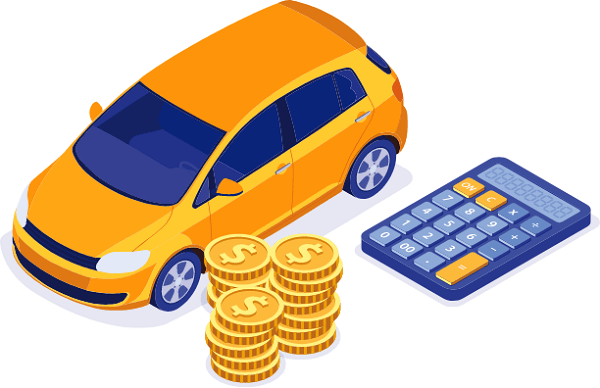Bearing the recurring expenses of Auto insurance may seem like a hassle, but you should consider it an essential investment for your time of need. Auto insurance not only protects your vehicle in case of an accident. It also shields you from the financial loss caused by a traffic accident, car theft, natural disasters, and other unfortunate events.
It is a common misconception that an insurance plan with good coverage is always expensive. Due to the stiff competition between numerous insurance companies, some plans are affordable for everyone and provide decent coverage.
The key to finding the right auto insurance plan for your needs is doing your research, comparing quotes, evaluating your factors, and using all available discounts. We have compiled seven helpful tips that you can use to get affordable car insurance for your specific needs:
1. Compare Auto Insurance Quotes on Insurance Comparison Websites

If you want to get competitive rates and great coverage, then research and shopping around is vital. Don’t just look at quotes from the larger, more established insurance companies such as Geico, but also get quotes from smaller insurance firms. Considering many options will ensure that you find the best deal on offer.
The easiest way of learning about insurance packages and coverage from multiple insurers is to use insurance comparison websites. Alternatively, you can consult a car insurance agent to help you weigh all the options.
2. Understand the factors that affect your insurance premium

Multiple factors besides your driving record impact the auto insurance quote you will receive from companies. In simple terms, the total price of insurance insurers provides you is evaluated after considering the risk of insuring you. The company will assess your personal information, data about claims, and other factors to determine the risk.
Your credit scores might also affect your insurance premium in some states, so it’s essential to learn about the various factors influencing the cost. Other than your credit, auto insurance rates you’ll receive can also be impacted by the factors discussed below:
- ZIP code — Zip codes might be necessary when determining the rate because some areas have a higher percentage of accidents and thefts.
- Car’s year, make, and model — luxury cars and more expensive models usually have higher insurance rates. If the make and model of your vehicle have been in more reported accidents, thefts, repairs, or more claims have been filed by drivers using the exact vehicle; then the premium will be higher.
- Monthly Number Of Miles Driven — the rate will be lower if you put fewer monthly miles on your car.
- Driving history — if you have a good driving record, you will benefit from lower rates and better discounts.
- Marital Status And Age — Your age and marital status impact the insurance premium because these factors may influence the likelihood of getting into an accident, according to data.
3. Think About The Liability-Coverage Limits

Liability insurance usually covers property damage liability, bodily injury liability, and uninsured motorist coverage. Each U.S state has its minimum car insurance coverage requirement, which is the minimum insurance coverage you need to be insured. However, for a higher rate, you can increase your coverage limit.
Before deciding your coverage limits, consider your assets, including your home, investments, and savings.
4. Consider increasing your deductible

The deductible is the primary amount that you agree to pay before your auto insurance begins to pay. Not many people consider increasing their deductible amount; however, raising your deductible is a smart way to lower your monthly premium.
But before you decide on increasing your deductible, ensure that you have carefully planned out your financial situation. It is essential to make sure that you are not setting yourself up for financial distress at the time of making a claim.
5. Consider skipping comprehensive and collision coverage for old vehicles

Collision coverage protects if you get hit by another car/object or in a single-car accident. Whereas, Comprehensive coverage protects if your car gets stolen or damaged due to non-collision events, including natural disaster, damage during a theft, or contact with an animal. These two coverages are developed to cover your car’s repair or reimburse you according to your vehicle’s value.
Comprehensive and collision are optional coverages that might only be necessary if you lease or finance your car. If you have a low-value, old car that is paid off, you can opt-out of collision and comprehensive coverages. However, depending on your specific situation, it might be necessary to opt for comprehensive and collision coverages, but you can select a less expensive one.
You can decide whether or not you need comprehensive and collision coverages by comparing your car’s book value with the collision and comprehensive deductible and the annual cost of these coverages mentioned in your insurance quote. If you have an old vehicle and you are unsure of its book value, you can ask a professional to estimate your vehicle’s value.
Bonus tip: Keep a check on car insurance discounts
Many insurance providers offer discounts throughout the year based on driving history, car features such as anti-theft devices, group membership, student discounts, policy ownership, and more. Keep an eye on car insurance discounts to save big on your car insurance. Depending on your insurance provider’s policies, the following groups are usually eligible for a car insurance discount:
- Drivers who also have other insurances or more than one vehicle insured with the same insurance provider.
- Drivers with automatic payment or who pay their entire annual premium in one payment.
- Veterans, military personnel, active or retired federal employees.
- Full-time students who carry an excellent academic record.
- Good drivers with no accident record for a specific number of years.
- Drivers with insured car parts like anti-theft systems, airbags, anti-lock brakes, or daytime running lights.
Remember! It is crucial to consider the reviews and ratings of the insurance provider!
Don’t we all wish that choosing cheap car insurance was as simple as selecting any insurance company that offers you the lowest rates? It is essential to choose an affordable insurance provider that is also reliable, quick, and efficient in the long run, especially when you need to make a claim.
You can get a somewhat of an idea of the service of an insurance company by checking the third-party ratings and reviews. Many companies conduct an annual study to rate the insurance providers; we recommend you invest your time and efforts in researching cheap insurance providers’ services before making your decision.
These yearly studies are also an excellent platform to know about less popular but trustable yet cheap car insurance providers. You can also ask reliable insurance companies for SR22 insurance quotes to help you make an informed decision.
Closing words
Price is an important decision factor for many when considering car insurance, but never select an insurance provider based on the cost of its services. It is essential to do your research and choose an insurance provider that is efficient and trustable in the long run.
We hope that this techlectual’s post will help you select the best cheap insurance. If you have any questions or concerns, feel free to ask us in the comments section below.
Read also:



